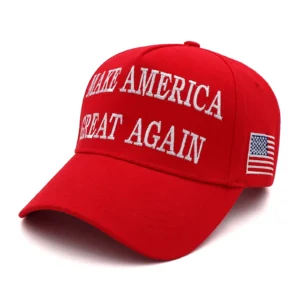MAGA, What is MAGA? Before Trump Turned it into a Cult

/
RSS Feed
When we look at the original core beliefs of MAGA — before they were distorted by authoritarianism, disinformation, and grievance theatrics — there were some genuinely resonant themes that connected with millions of Americans. Here’s a breakdown of those core ideas, framed without the Trump spectacle:
1. Economic Nationalism
Belief: American jobs should come first — especially in manufacturing and industry.
Motivation: Decades of globalization and free trade deals like NAFTA were seen as hurting U.S. workers while benefiting multinational corporations.
Goal: Bring jobs back to American soil, reduce outsourcing, and protect domestic industries with fair trade policies.
2. Border Security and Immigration Reform
Belief: A sovereign nation must control its borders.
Motivation: Concerns over illegal immigration, wage suppression, and national security — mixed with cultural anxiety about changing demographics.
Goal: Enforce immigration laws, secure the border, and reform the system so it serves U.S. interests while maintaining lawful pathways.

3. Government Accountability & Drain the Swamp
Belief: Washington is corrupt, elitist, and out of touch.
Motivation: Anger at career politicians, lobbyists, and bureaucrats who seemed to serve donors and corporations instead of the people.
Goal: Shake up the system, reduce special interests, and return power to voters.
4. America-First Foreign Policy
Belief: The U.S. should stop being the world’s policeman.
Motivation: Frustration with costly wars (Iraq, Afghanistan) and foreign aid while domestic problems were ignored.
Goal: Focus on national interests, avoid entangling alliances, and use diplomacy and economic leverage over military force.
5. Respect for Working-Class and Rural Americans
Belief: The voices of rural and working-class people have been ignored or mocked.
Motivation: Cultural resentment toward urban elites, media, academia, and Hollywood.
Goal: Reassert the dignity and importance of everyday Americans — especially those in smaller towns and traditional industries.
6. Skepticism of Global Institutions
Belief: Organizations like the UN, WTO, and WHO don’t always act in America’s best interest.
Motivation: A feeling that globalism had undermined American sovereignty.
Goal: Reassert national independence in decision-making.
7. Cultural Traditionalism
Belief: Traditional values — faith, family, patriotism — are under assault.
Motivation: Rapid cultural change, secularism, and progressive social norms created anxiety and backlash.
Goal: Defend what many saw as the moral foundation of the country.
Summary:
MAGA began as a reaction to lost trust in institutions — economic, political, and cultural. It channeled authentic frustration with globalization, elitism, and cultural displacement. Many of its early supporters were not racist, authoritarian, or conspiracy-driven — they were disillusioned voters looking for someone to listen.
What Went Wrong:
Trump harnessed that energy but weaponized it, shifting the focus from policy solutions to personal loyalty, vengeance, and spectacle.
MAGA became less about “Make America Great Again” and more about “Make Trump Untouchable.”
But if you strip the narcissism and noise away, what remains are concerns that deserve serious, non-extremist attention — and could form the basis of a healthier populism if reclaimed from demagogues.
Part 2: What Trump Turned it Into
Part 3: Is It Too Late Getting Back on Track

